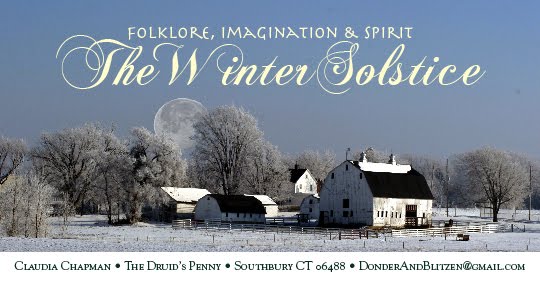Midsummer and Midwinter are also the great feasts of the Druids, marking the turning points in the year as we slip back and forth from darkness in to light and back again. In Midwinter Darkness, we turn to light. The sun grows stronger. Paradoxically now, when the sun is at its peak of strength, lighting even the evening hours, the days actually begin to grow shorter. We head in to darkness.
I only recently made the connection to the dates assigned to the celebration of the Nativity and John the Baptist. "I must grow less...." The words of John the Baptist refer also to the sun. This is the season when the sun "must grow less".
John's mother Elizabeth and Jesus' mother Mary are cousins. John is six months older than Jesus, so if the Nativity of Christ falls at Midwinter, then John's birth must be Midsummer. But here is the question: Since the gospels were written before the Church decided to celebrate the birth of Christ at Midwinter, was the story of the sun's mysterious journey already there waiting to be discovered?
